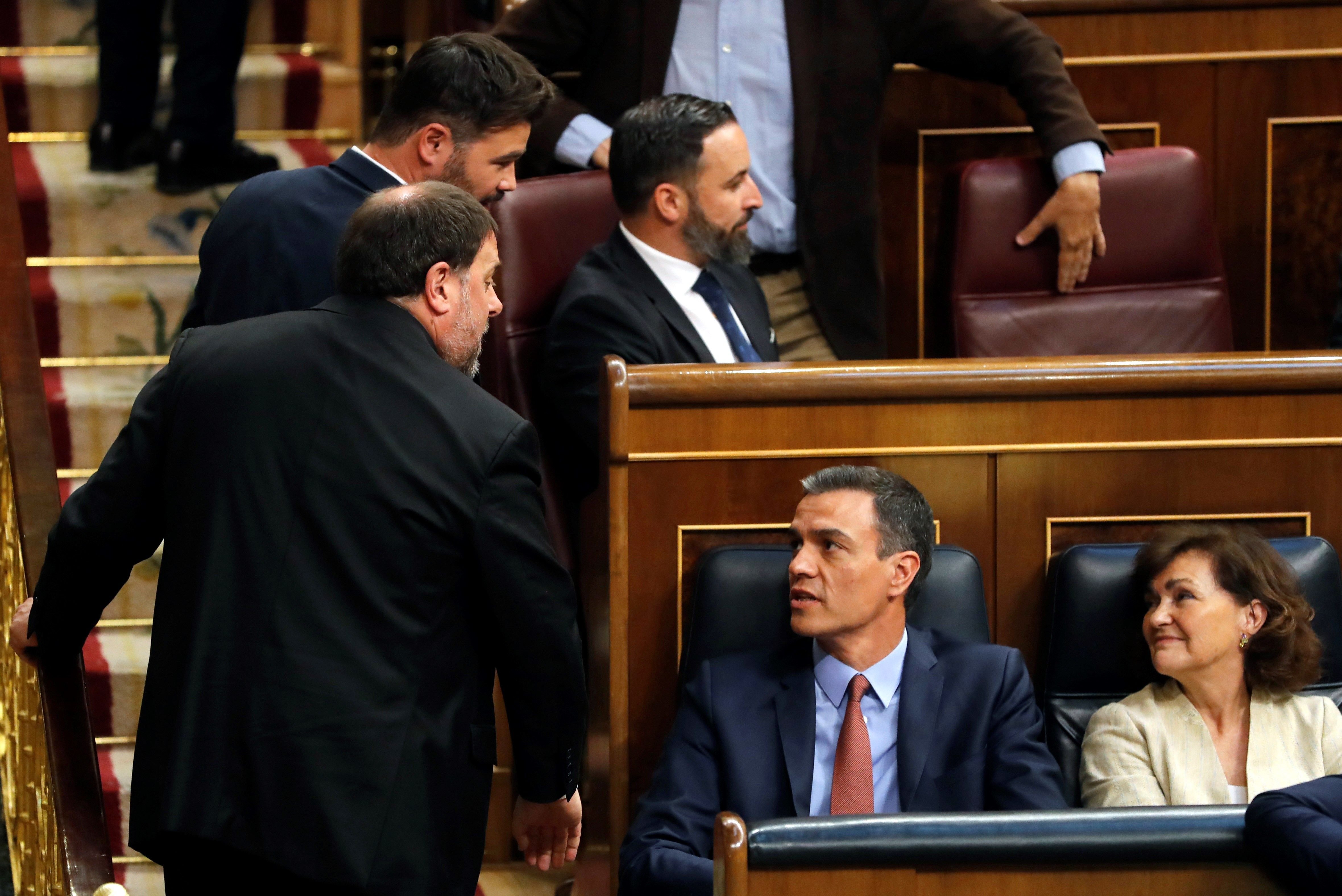The folder has now landed on the table. But the Spanish government does not want to talk about its contents: the possible release of the Catalan political prisoners. The justice minister has gone cool on his promise to pass the reform of Spain's sedition law before the end of this year. And spokesperson María Jesús Montero does not want to "comment" on the other approach to the prisoners issue, that of granting pardons to the convicted pro-independence leaders, a question which is currently awaiting the consideration of the Supreme Court, which has to issue a report. Although junior government partner Unidas Podemos is pushing for the process to be sped up, the Socialists are avoiding the matter in public. Meanwhile, the pro-independence parties have today moved to put forward an amnesty law, a route on which the PSOE has closed the door.
The PSOE's silent approach was on display once again this Wednesday in the press conference following the weekly Spanish cabinet meeting. "I reiterate that the government does not comment on or enter into assessments or investigations or court rulings," Montero said when asked if pardons would be granted before or after the Catalan elections of 14th February. "It is up to them," she insisted, noting the "absolute independence" of the judiciary. And she said nothing more about the folder which sits steaming on the table.
However, the executive spokesperson was much more expansive on another recent hot potato question: the terms of the renewal of the General Council of the Judiciary (CGPJ), which is now over two years overdue. She again called on the main opposition party, the PP, "to implement this reform and it is not necessary to activate" the reform registered in Congress by the PSOE and Unidas Podemos. "The agreement is virtually complete, maybe it is complete," said Montero, reiterating that a "pre-agreement" has already been reached although the right-wing party is "reluctant to acknowledge this in public." She criticized the fact that every day they use "a different excuse" to postpone it.
Four-day weeks and home evictions
As well, treasury minister Montero poured cold water on another debate that had been up for discussion: the possibility of a four-day working week. This issue was opened by Íñigo Errejón of left-wing party Más País in the Congress of Deputies during the budget debate, and deputy PM Pablo Iglesias had taken it up. On this matter, the minister wanted to be clear and concise: "This matter has not been addressed in the cabinet. Nor has it been addressed under the umbrella of the government’s economic area. We are in the midst of a health pandemic. The priority of this government is to return to our former growth rates."
Asked about the delay in the decree to ban home evictions during the Covid crisis, which was announced last week by the two Spanish government partners, Montero assured reporters that the subject will be addressed in the next cabinet meeting.

